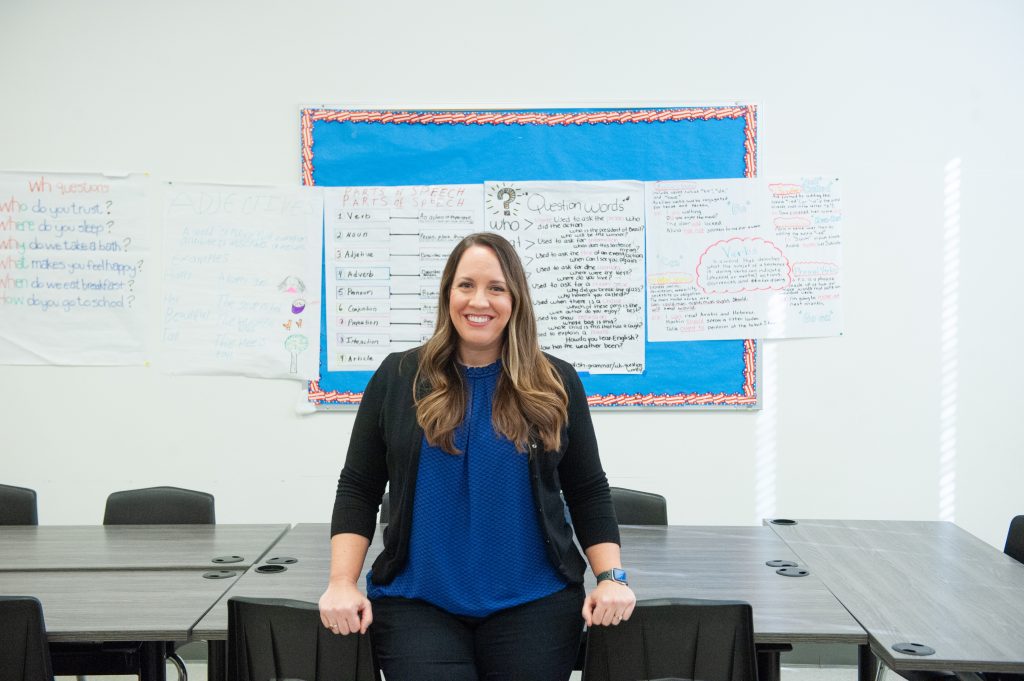Instructor draws from international experience to teach adult English learners

After completing her general education at San Joaquin Delta College, Amber Wolak planned to go to law school after graduating from UCLA. But a lengthy stint in the Peace Corps and her experiences living abroad changed those plans.
“They sent me to Mauritania, West Africa, and I taught English for two years,” Wolak recalls. “I really loved that experience and also realized how difficult it is when you’re thrown into a living situation where you don’t speak the language and you need to rely on other people.”
When her time in Africa was over she taught English in China for another year before returning home and completing her master’s in English, and she began teaching at Delta College in 2013. Since then has been integral in developing new approaches to teaching English as a second language (ESL) within the San Joaquin Adult Education Consortium, having started a bridge class with fellow consortium member Stockton School for Adults.
“I really loved that experience and also realized how difficult it is when you’re thrown into a living situation where you don’t speak the language and you need to rely on other people.”
Amber Wolak, Professor, San Joaquin Delta College
“We’re now in the third semester of offering it at Stockton School for Adults,” Wolak says. “And that’s a Delta College course that we bring to the students.”
Cynthia Segura, originally from Mexico, says she joined the bridge class because it helped her transition to the college.
“This class, ESL 82 bridge, helped me with my daily activities.” Segura remembers “I improved my English, so now I feel comfortable talking or answering calls, or asking for some things in any place.”
Segura says she was initially scared of taking college courses, but after taking the bridge course she felt far more confident in her ability to do so. She is now in her third semester of studying business and entrepreneurship at Delta College.
Through the bridge courses, students not only take the ESL offerings at the adult school but also get to experience a college-level ESL course. On top of educating new English learners, Wolak says she also tries to provide them with a path towards future careers as well.
“I have them write essays and do research on future careers and future pathways, so they can actually use that information as they figure out what they want to do moving forward,” Wolak says.
Working with the consortium also means making sure the course offerings of Delta College and the other consortium member schools compliment each other. Wolak says part of doing this meant cutting the college’s lowest level ESL courses and referring students to the adult schools instead.
“Delta College now has four semester levels of ESL so that there’s a seamless transition when they max out at the adult school,” Wolak said. “Then they’re ready to enter at our lowest level at Delta College.”
As difficult as coordinating with other schools and programs alongside teaching her own courses can be, Wolak knows from her own experiences how important it is to make the effort for new English learners.
“I moved to China without knowing any language as well,” she says, “so I think that helps me be patient with my students because I know that feeling.”
For more information about English as a second language and other adult learning programs in the area, visit the San Joaquin Adult Education Consortium’s website at sjadulted.org
Written by Jacob Peterson
| Regions | Classes & Topics |
|---|---|
| Central California | English as a Second Language |